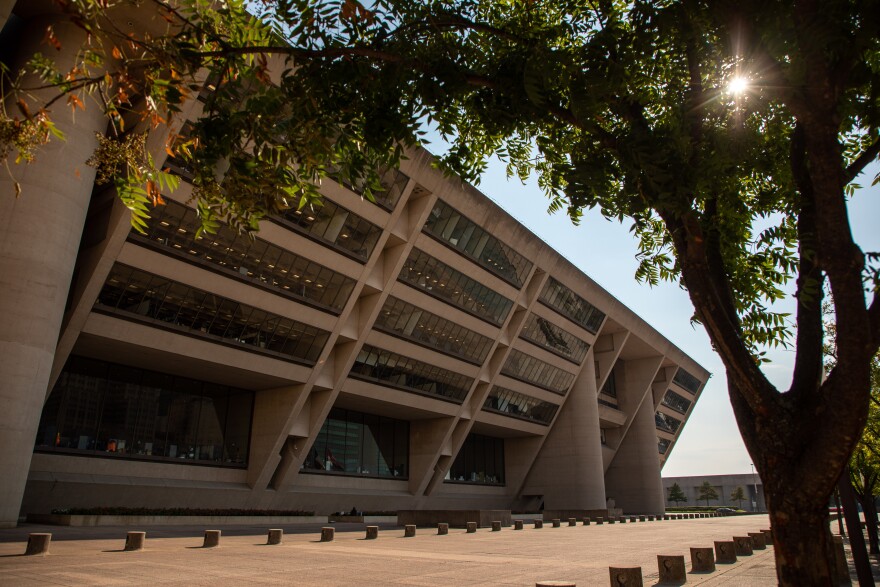The spending plan is about $160 million more than the current budget adopted last fall. That increase was largely driven by federal coronavirus relief money and increased property and sales tax revenues.
The general fund is at $1.7 billion. It’s used to pay for city services like public safety, parks, transportation and libraries. Broadnax says that’s 11% higher than the previous year. And a big chunk of that money is going to public safety.
What would the new budget mean for Dallas residents?
A lower property tax rate
Like other North Texas cities, Dallas is looking to lessen the pain for homeowners who've seen their appraisals increase. The proposed budget would lower the tax rate.
The Dallas property tax rate would drop to 74.58 cents per $100 valuation. A resident with a home valued at about $330,000 would save about $70 dollars on her tax bill. If approved, this would be the seventh year in a row that Dallas lowers property taxes.
But note that a lower property tax rate doesn’t necessarily mean a resident’s tax bill would be lower. Property values are determined by county appraisal districts.
Property taxes primarily go to the city's general fund which is used for city services.

More police officers
The Dallas Police Department’s budget would be about $612 million. That’s an increase of more than $40 million from what the City Council approved last fall. It would include hiring 250 police officers, more than $4 million for financial incentives to retain officers about to retire for one more year and create a Night Detail Team to educate, monitor and inspect venues at entertainment districts.
The cost of trash and water would go up
Fees are expected to increase for city water, storm drainage and sanitation services. The monthly sanitation fee would go up by 4.4%. Residents would pay a new fee of $35.81.
City staff said the reason for higher fees is because of rising gas prices and new equipment, and the city's goal to increase the minimum wage for employees.
Storm drainage fees would increase by 40 cents to a monthly bill of $9.22 and water and wastewater services would go up to an average rate of $70.19 a month.
The Department of Sanitation Services serves approximately 245,000 households. The Sanitation Services fees cover the cost of providing garbage, brush and bulk trash, and recyclables collection services for Dallas residents.

Other items included in the proposed budget:
Transportation and Infrastructure
- Invest $157.3 million in the City’s infrastructure for streets, alleys, bridges, and sidewalks
Economic Development
- Hire more permit clerks for the city’s building permit process to improve the customers’ experience
- Initiate the nearly $2 billion Kay Bailey Hutchinson Convention Center Master Plan
Environment and Sustainability
- Protect the city's tree canopy and slow the spread of the Emerald Ash Borer
- Invest in environmental justice and remediation efforts
Housing and Homeless Solutions
- Protect people experiencing homelessness during inclement weather
- Launch a $2.5 million a Homeless Action Response Team
Broadnax’s plan also would increase the minimum wage for city workers from roughly $15 an hour to $18, expand the hours of nine Dallas public library branches from 40 to 54 hours a week and implement the city’s new Racial Equity Plan.
The new budget would take effect October 1st.
This story has been updated. The budget vote was originally scheduled for Wednesday, Sept. 21, but a city agenda reflects the vote has been pushed to next Wednesday, Sept. 28.
Got a tip? Email Alejandra Martinez at amartinez@kera.org. You can follow Alejandra on Twitter @alereports.
KERA News is made possible through the generosity of our members. If you find this reporting valuable, consider making a tax-deductible gift today. Thank you.






